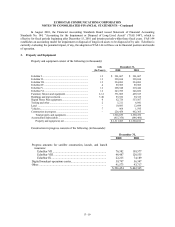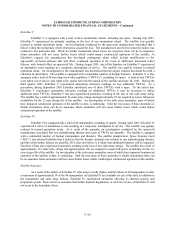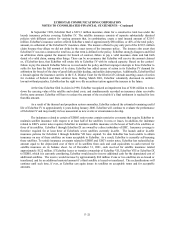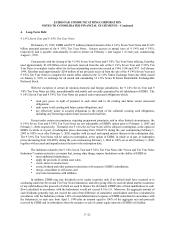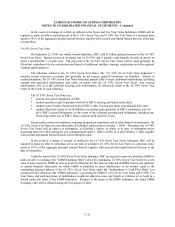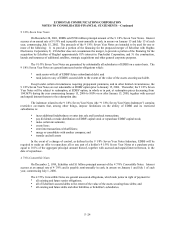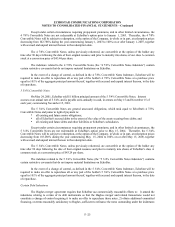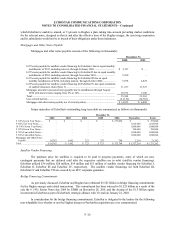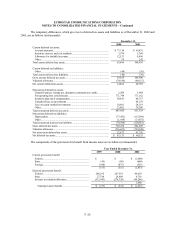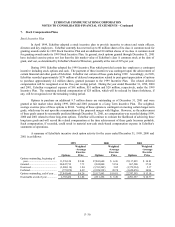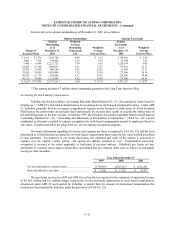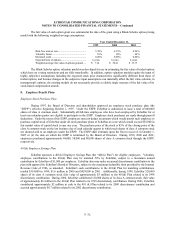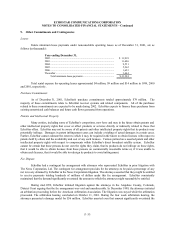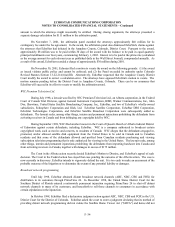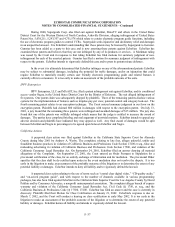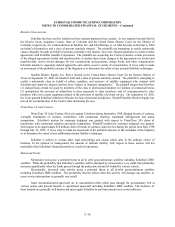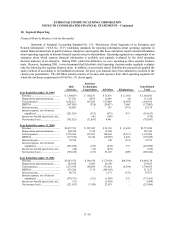Dish Network 2001 Annual Report Download - page 94
Download and view the complete annual report
Please find page 94 of the 2001 Dish Network annual report below. You can navigate through the pages in the report by either clicking on the pages listed below, or by using the keyword search tool below to find specific information within the annual report.ECHOSTAR COMMUNICATIONS CORPORATION
NOTES TO CONSOLIDATED FINANCIAL STATEMENTS – Continued
F–29
Deferred Tax Assets
Net deferred tax assets of approximately $69 million and $67 million as of December 31, 2001 and 2000,
respectively, have remained substantially unchanged on EchoStar’s balance sheet since 1996. Additional deferred tax
assets of approximately $844 million generated since 1996 have been substantially offset by adjustments to EchoStar’s
valuation allowance. EchoStar expects to generate taxable income in the future, but the timing and amount of that
taxable income is uncertain and EchoStar does not believe the criteria for recognition of additional tax benefits are
presently satisfied. EchoStar needs to generate future taxable income of approximately $190 million to realize the
benefit of the net deferred tax assets recognized and EchoStar continues to believe it is more likely than not that the
assets it has recorded will be realized. EchoStar expects to adjust the valuation allowance in the future when the timing
and amount of additional future taxable income becomes more certain. If it is determined at some point in the future
that any or all of previously reserved deferred tax assets are more likely than not realizable, significant deferred income
tax benefits will need to be recorded and such benefits may be material.
Internal Revenue Service Proposed Adjustment
During 2001, the Internal Revenue Service conducted an audit of EchoStar’s consolidated federal income tax
returns for the years 1997, 1998, and 1999. As a result of this review, the IRS’ position is that certain subscriber
acquisition costs deducted by EchoStar in those years should instead be capitalized and amortized over a period of five
years. EchoStar does not agree with this proposed adjustment and has initiated an appeal of the agent’s position. At
this time, the ultimate resolution of this dispute is uncertain. If EchoStar’s arguments for deductibility are unsuccessful
and EchoStar is required to capitalize and amortize these costs over five years, the federal net operating losses
(“NOLs”) available to EchoStar at December 31, 2001 could be reduced by as much as $1.7 billion. Such an outcome
would not materially alter EchoStar’s ultimate tax obligations but could significantly accelerate the timing of when it
would be required to begin making material current income tax payments. EchoStar would also incur a cumulative
alternative minimum tax liability for the years 1998, 2000, and 2001 totaling approximately $7 million. Any reduction
in NOLs and the resulting alternative minimum tax liability would be offset by corresponding deferred tax assets
related to the unamortized capitalized cost and the future credit for the alternative minimum taxes paid which may be
carried forward indefinitely. EchoStar intends to vigorously defend its position that EchoStar will be able to continue
its current policy of deducting subscriber acquisition costs as incurred for tax purposes. However, as of December 31,
2001, the outcome is uncertain.
6. Stockholders’ Equity (Deficit)
Common Stock
The class A, class B and class C common stock are equivalent in all respects except voting rights. Holders of
class A and class C common stock are entitled to one vote per share and holders of class B common stock are entitled
to ten votes per share. Each share of class B and class C common stock is convertible, at the option of the holder, into
one share of class A common stock. Upon a change in control of ECC, each holder of outstanding shares of class C
common stock is entitled to ten votes for each share of class C common stock held. ECC’s principal stockholder owns
all outstanding class B common stock and all other stockholders own class A common stock. There are no shares of
class C common stock outstanding.


